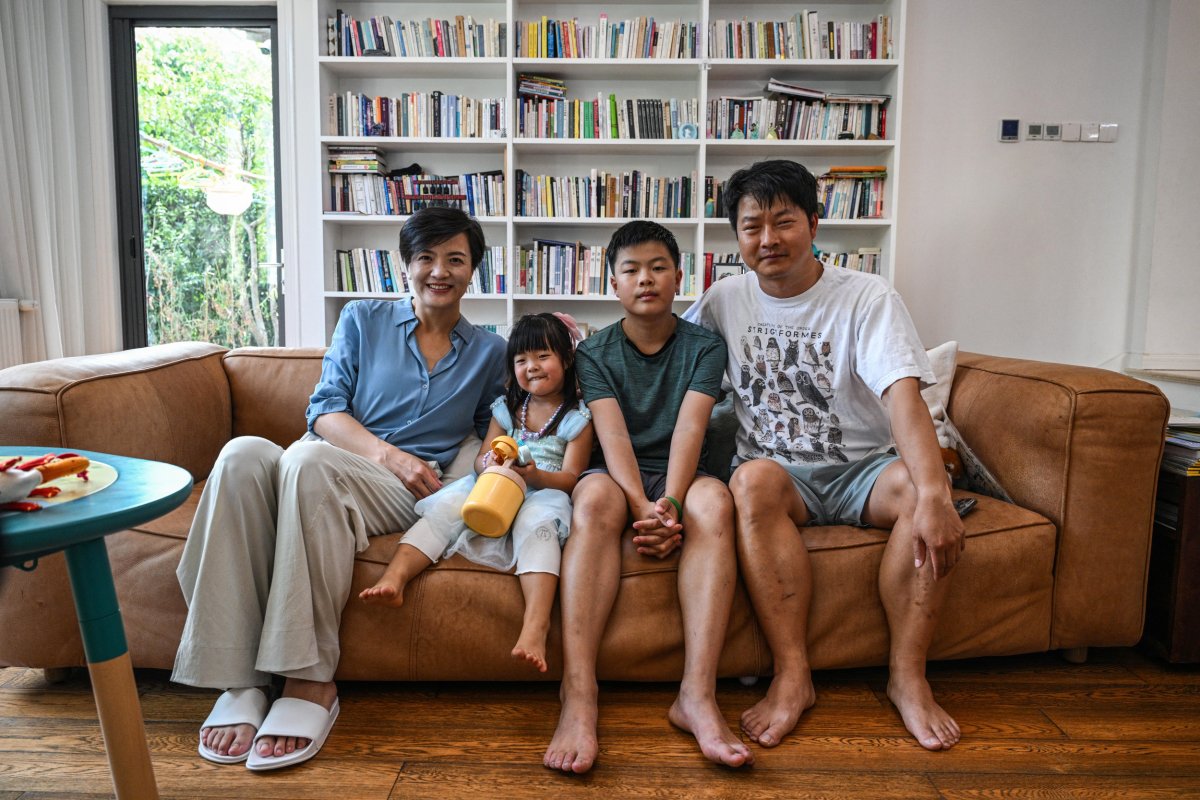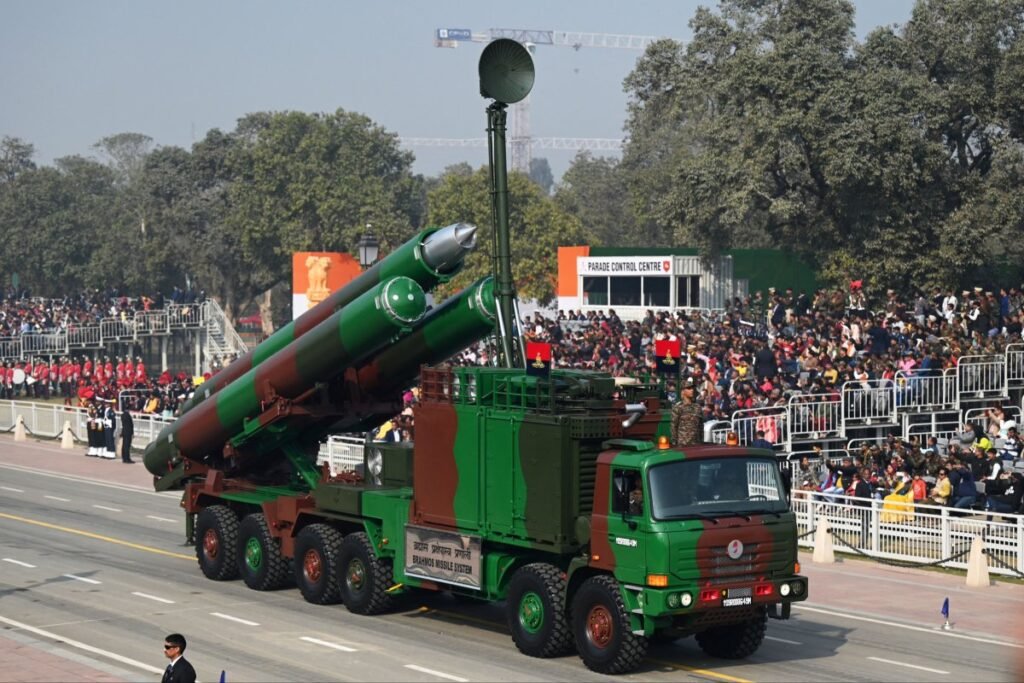What’s New
Shanghai has introduced policies encouraging employers to create “childbirth-friendly” positions aimed at supporting people with young children amid mounting concerns over China’s declining birth rate.
Why It Matters
Despite extensive measures by central and local governments, including the relaxation of the decades-long one-child policy to allow two and later three children, China’s fertility rate last year dipped to 1.0 births per woman—far below the replacement rate of 2.1.
Rising living costs in major cities, intense workplace demands and shifting attitudes among younger generations are frequently cited as factors behind the decline. The trend, combined with a rapidly aging population, has raised concerns about the long-term resilience of the world’s second-largest economy.

This photo taken on August 9 shows stay-at-home dad Chen Hualiang, right, his wife Mao Li, and children posing at their home in Shanghai. Shanghai is encouraging employers to offer more flexible positions for parents of young children.
Hector Retamal/AFP via Getty Images
What To Know
A joint notice issued by the Shanghai Municipal Human Resources and Social Security Bureau, the city’s trade union federation, and the Shanghai Women’s Federation calls for creating “childbirth-friendly” roles.
These jobs feature flexible working hours, remote work options and performance-based reviews to accommodate parents’ needs, according to Chinese media outlet The Paper. Employers and employees are expected to formalize these rights and obligations in their contracts.
Traditional sectors as fertile ground for the policies include manufacturing, hospitality, catering and domestic services—including elder and child care. Emerging industries such as the gig economy, digital economy and creative-sector niches such as internet marketing and multimedia are also being targeted.
Shanghai authorities plan to establish a centralized list of employers offering such positions and incorporate these roles into public employment services. In addition, job fairs and online recruitment platforms will feature dedicated sections for “family-friendly” jobs, with employers encouraged to clearly label related postings.
Employers are also to prioritize reemployment training for mothers returning to the workforce after childbirth. Meanwhile, subsidized vocational training programs will be available to workers in targeted industries, while vocational schools and training centers will also receive funding to enhance their offerings in child care, elder care and digital skills.
Shanghai’s announcement follows a similar move by the northeastern port city of Qingdao, which recently introduced more than 1,000 “mommy positions” offering greater flexibility on mothers’ work schedules.
What People Are Saying
Liu Yanwu, sociology professor at Wuhan University, told Xinhua: “This contributes to a positive atmosphere for building a fertility-friendly society, thereby enhancing the public’s willingness to have children.”
Yi Fuxian, an obstetrician at the University of Wisconsin-Madison who studies demographics: “Enterprises consider their own economic interests, and they are reluctant to respond to the government’s appeal if it will reduce their efficiency… There are many shortcoming’s that contribute to China’s low fertility rate. Even if China does create parent-friendly positions, this alone will not boost it.
What Happens Next
As more cities introduce family-focused policies, experts will watch for their impact on birth rates. These measures represent a shift in how local governments address population decline, focusing on work-life balance to encourage more families to have children.
Update 12/23/24, 2:40 a.m. ET: This article has been updated with a comment from Yi Fuxian.







![[News] Over 14,000 Chinese Chip Firms Reportedly Shut down in 2024 amid Accelerating Reshuffle](https://koala-by.com/wp-content/uploads/2024/12/istockphoto-178487234-612x612.jpg)
